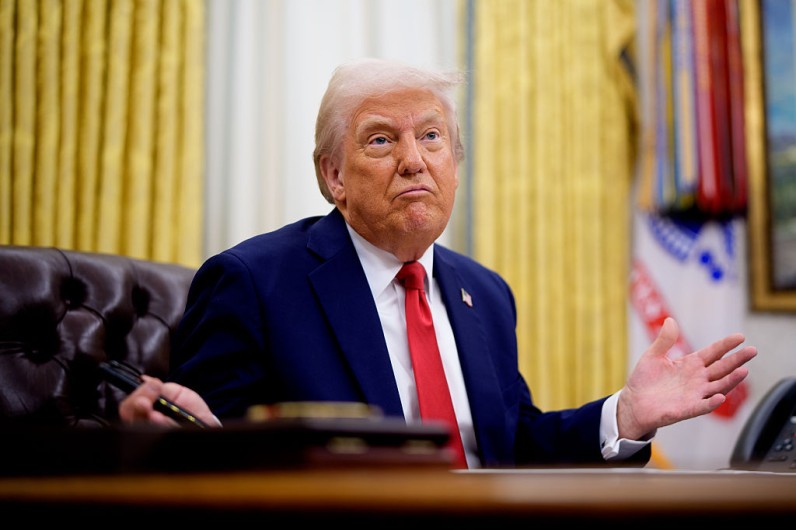
President Donald Trump announced a 90-day pause on tariffs for most nations on Wednesday, offering a glimmer of hope to global markets.
The move, in response to intense market pressure, led to a significant rally, with the S&P 500 jumping by 9.5%.
However, this relief is tempered by an increase in taxes on Chinese imports, now raised to a steep 125%.
Trump's decision to halt tariffs on most countries came as a response to economic turmoil, which had caused markets to fluctuate.
Following concerns about the impact of high tariffs on global trade, Trump shared on Truth Social that "more than 75 countries" had reached out to the US for trade talks, AP News said.
As a result, the tariffs on most goods entering the US were reduced to a 10% rate. This was a sharp contrast to the original 20-25% rates set on imports from various nations, including the European Union, Japan, and South Korea.
The pause has sparked a major rally in the US stock market, with the Dow surging nearly 3,000 points.
The tech-heavy Nasdaq saw a remarkable 12.2% rise, marking the best performance since 2001. Trump's decision to adjust tariffs came after significant pressure from Wall Street, with bond markets signaling doubts about the administration's trade policy.
Donald Trump caved! A 90-day tariff pause, 10% reciprocal rates, except China at 125%. Buckled under pressure, screwed everyone. A pathetic U-turn from a so-called tough leader pic.twitter.com/hoUnp4lAfd
— KHAN (@Khansofindia1) April 9, 2025
Trump's Tariff Pause Helps Markets, But China Faces Steep Tax Hike
However, the pause does not extend to China. Trump announced that tariffs on Chinese goods would increase from 104% to 125%, following Beijing's retaliatory tariffs.
According to CNN, this decision is seen as a clear signal that the US is not backing down in its trade dispute with China, which has already announced plans for retaliatory measures of its own.
In response, China's State Council condemned the move, calling it a "mistake upon mistake" and a violation of global trade rules.
While the pause may temporarily calm the markets, many economists remain skeptical about its long-term impact.
Some suggest that the US economy may still face a recession, with Goldman Sachs raising the likelihood of a downturn in the next year.
Joe Brusuelas, chief economist at RSM US, believes the US economy could fall into recession despite the tariff pause, citing the ongoing economic shocks from previous trade policies.
Despite the concerns, the pause is seen as a potential step toward easing tensions with other nations. Treasury Secretary Scott Bessent confirmed that the pause was part of Trump's broader strategy to negotiate with individual countries.
Talks with nations such as Japan, South Korea, and Vietnam are expected to take place in the coming weeks.







Join the Conversation